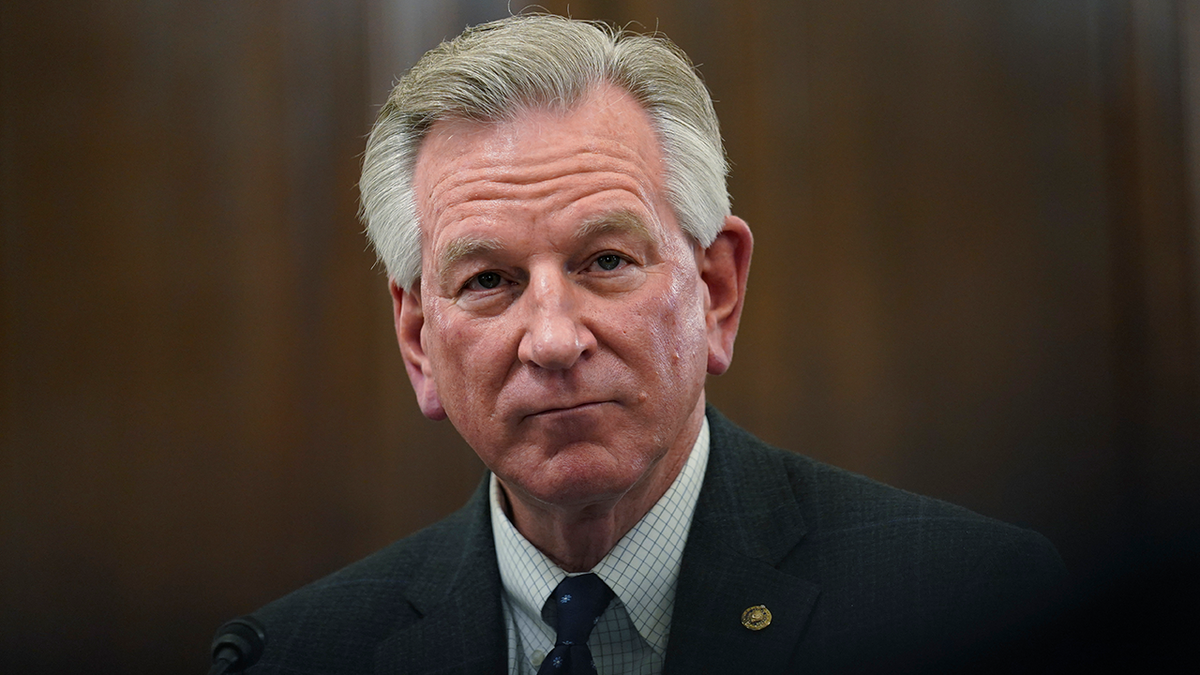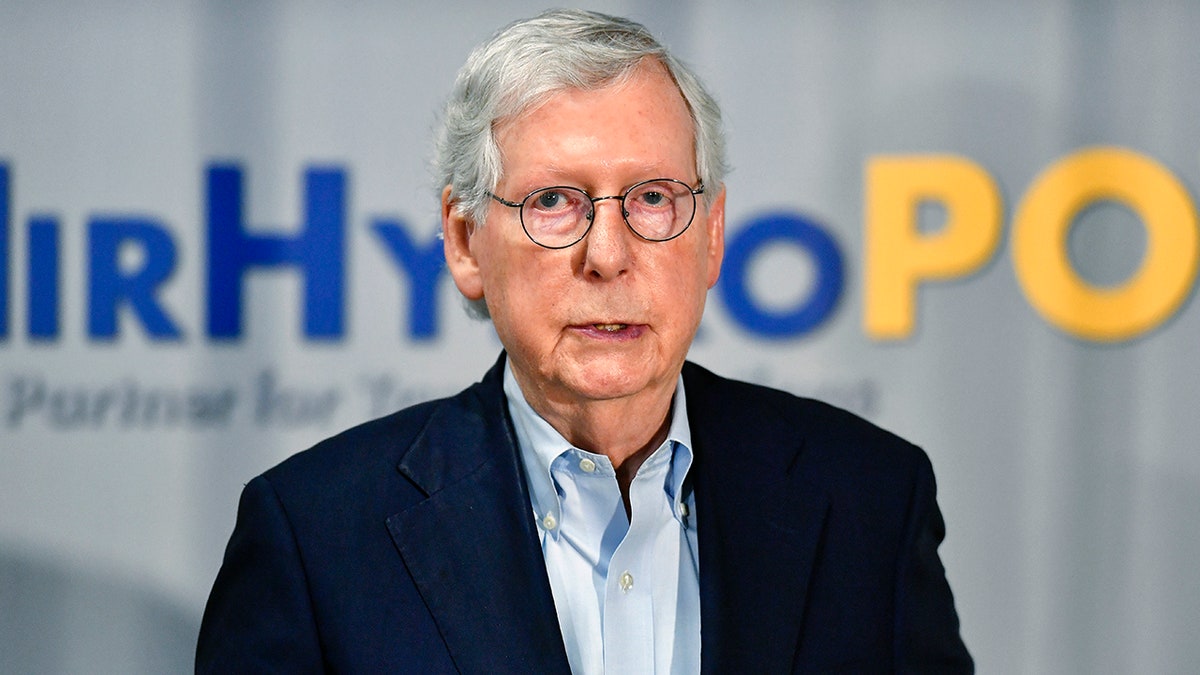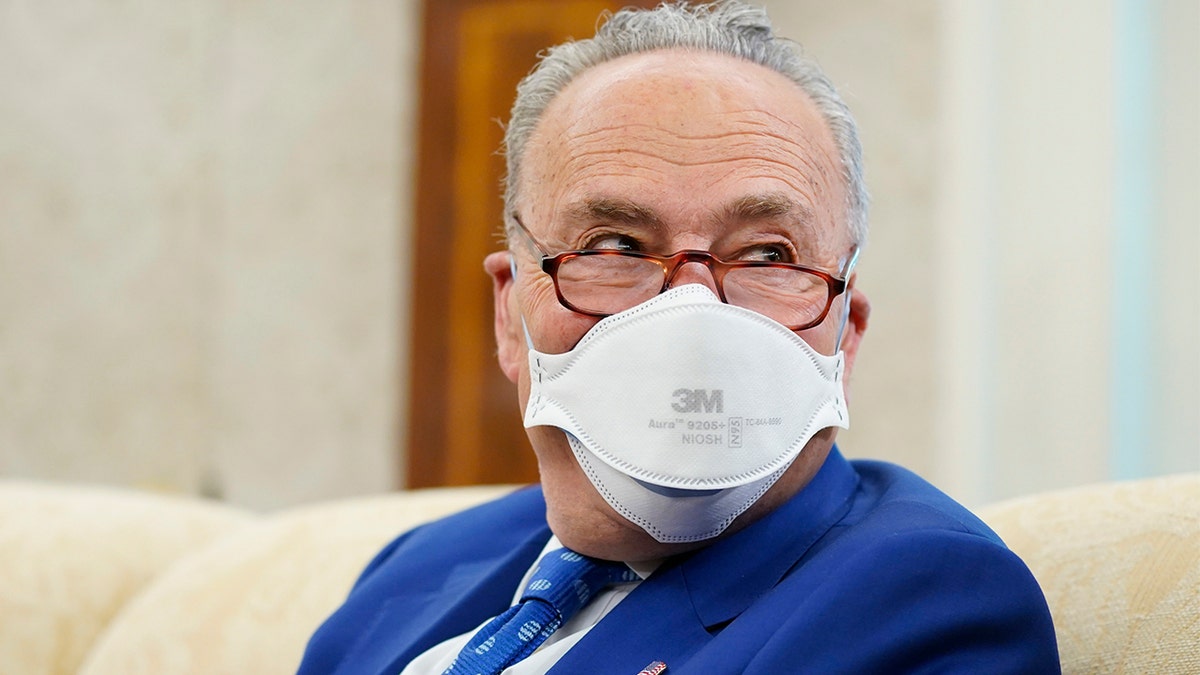Fox News Flash top headlines for December 8
Fox News Flash top headlines are here. Check out what's clicking on Foxnews .com.
Many Senate Republicans on Wednesday were frustrated with a deal Senate Minority Leader Mitch McConnell reached, on a party-line vote, to allow Democrats to raise the debt ceiling — as Congress took one step closer to ending the debt-limit saga that started in the summer, when Republicans first said they would refuse to raise it.
"I'm not real keen on the idea right now, to be honest with you, because we had a red line," Sen. Tommy Tuberville, R-Ala., told Fox News shortly after McConnell, R-Ky., unveiled the proposal to his colleagues at a lunch.
"Let them do it. They got the votes to do it," he added. "But we got to look out for Medicare expansion too. You know we want to make sure we do the right thing there too. So it's kind of got us between a rock and a hard place."
Nearly all Senate Republicans earlier this year signed a letter saying they would refuse to vote to increase the debt ceiling in protest of Democrats' partisan spending. They argued Democrats should raise the debt ceiling using reconciliation to avoid the filibuster.

Sen. Tommy Tuberville, R-Ala., listens during a Senate Agriculture, Nutrition, and Forestry Committee hearing on Capitol Hill in Washington, Thursday, March 11, 2021, on climate change. (AP Photo/Susan Walsh)
HOUSE PASSES PROCEDURAL BILL TO RAISE DEBT CEILING
But Senate Democrats refused to take that step, which led to a standoff in October as both parties threatened default if they did not get their way. McConnell relented and backed a temporary debt limit increase until this month, but said Republicans would not vote to increase the debt limit again.
Now, with potential default looming later in December, McConnell is endorsing a convoluted deal that he says would achieve the result Republicans wanted all along — forcing Democrats to raise the debt ceiling without GOP votes.
The deal would attach a one-time provision allowing the Senate to increase the debt ceiling at a simple-majority threshold rather than a 60-vote threshold to a bill to prevent Medicare cuts. This is basically the same as if Democrats used reconciliation, McConnell argued, because Democrats will be raising the debt limit to a particular number, rather than suspending it for a certain amount of time, which they would have to do under that process.
"I believe we've reached here a solution to the debt ceiling issue that's consistent with Republican views of raising the debt ceiling for this amount at this particular time, and allows the Democrats to proudly own it, which they're happy to do," McConnell said.

Senate Minority Leader Mitch McConnell speaks to reporters in Louisville, Kentucky, Monday, Aug. 16, 2021. (AP Photo/Timothy D. Easley)
Nevertheless, some in the GOP were dismayed about the plan — even if they are seriously considering voting for it.
"I'm very sad that those bills were combined, those proposals were combined. And it puts everybody between a rock and a hard place," Sen. Cynthia Lummis, R-Wyo., said.
"They're going to do it with a number in it. And so both processes produce the same result," she added. "And since the result is the same regardless of which process we use, I have to consider seriously the proposal that's been laid on the table."

Senate Majority Leader Chuck Schumer, D-N.Y., attends a meeting with President Biden and congressional leaders in the Oval Office of the White House, Wednesday, May 12, 2021, in Washington. (AP Photo/Evan Vucci)
GET FOX BUSINESS ON THE GO BY CLICKING HERE
"Nobody wants to default. But on the other hand, I would much prefer to have some improvement to our debt position as part of raising the debt ceiling, like, you know, some of the legislation I've supported. So, still looking at it," Sen. Rob Portman, R-Ohio, said.
Sen. Rick Scott, R-Fla., meanwhile, simply said, "I don't support raising the debt ceiling."
The House passed the bill to prevent Medicare cuts and allow the Senate to raise the debt ceiling via a simple majority Tuesday, and the Senate plans to take it up Thursday. That bill will still have to clear a filibuster, meaning it needs at least 10 GOP votes.
That is a low bar to clear, given the influence McConnell has on his members. But he may not have many more votes than that.
If the procedural bill passes the Senate it will set Congress on a glide path to finally increase the debt ceiling, likely sometime next week.
Fox News' Kelly Phares contributed to this report.














































